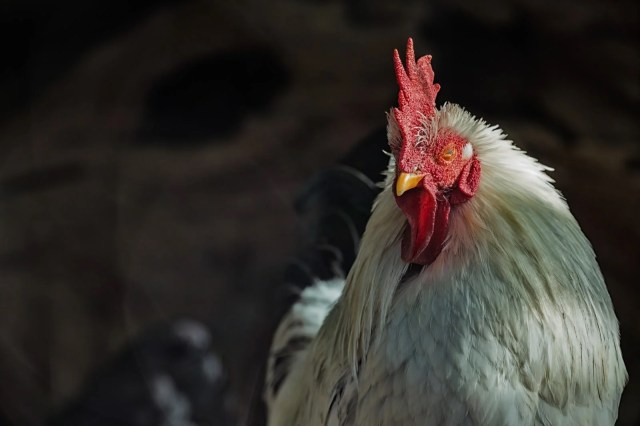
Pretty much every man, woman, and child in Japan works hard. Professionals throw themselves into their jobs, homemakers take on just about every domestic responsibility by themselves, and kids are expected to not only keep up with their regular studies, but also attend cram schools after their normal classes get out in the afternoon.
But is the Japanese work ethic so infectious that it caused a group of industrious chickens to lay an entire batch of double-yolk eggs?
Japan has a sort of tradition in which parents will often give or send foodstuffs to their adult children. This is especially common if the parents live in the countryside and the child has moved to the big city, with singles in particular often the recipients of care packages of a big of rice or crate of produce from back home.
Twitter user Umeboshi recently received a pack of eggs from her mom. Perhaps planning to add them to her salads or sandwiches, the daughter boiled what looks to be the dozen eggs she’d been given…only to find two dozen yolks.
お母さんがもらってきた卵が全部双子だった………w pic.twitter.com/w4gcWKLLz0
— うめぼし (@kuka_11820) May 4, 2015
Every single one of the eggs turned out to contain a double yolk. So what gives?
While Umeboshi is apparently yet to ask her parent how she came by the eggs, Twitter user Mitsuko has the basis of a plausible theory.
@kuka_11820 @sachihara_neko
— morio (@4U6PRwJqkUdr9kz) May 4, 2015
うおおおお!!!!
二黄卵じゃんか!普通は出荷しないからね(笑)
Egg farmers can tell whether or not a hen has laid a double-yolk egg without cracking it open. The shells of double-yolk eggs tend to be longer and more pointed than those of single-yolks, and the two yolks can also be seen when using a light to inspect the contents of the egg without cracking it.
Double-yolk eggs taste just the same as single-yolks ones, and some people actually feel lucky to discover one. Not everyone is left with such a positive impression, though. Some shoppers find them kind of gross, and so to avoid shocking their more sensitive customers, egg farmers generally remove them from any batches before they’re shipped to market, as pointed out by Mitsuko.
As such, it seems pretty clear that Umeboshi’s mom somehow got her hands on a package filled entirely of double-yolks that had been set aside during sorting at the farm. Maybe she has a friend who raises chickens and hooks her up with the unusual eggs that are fine to eat but tough to sell. Or maybe she’s known in the local community as “that lady who just can’t get enough egg yolks” and the producer boxes up a special selection just for her.
Either way, Umeboshi can eat the extra-content eggs without fear, as the phenomena of double-yolks is entirely natural. It generally occurs with young hens who’ve just reached egg-laying age, and is a result of their ovulation rhythm still not being entirely stabilized. In other words, it’s not the result of feed additives or improper handling, just like it doesn’t really have anything to do with Japan’s passion for productivity and economic performance.

 Japanese cook shocks Internet with yolkless egg discovery
Japanese cook shocks Internet with yolkless egg discovery Devious hens have been short-changing unknowing humans with their “large eggs”
Devious hens have been short-changing unknowing humans with their “large eggs” Easy lunch – Man cooks a batch of eggs on his car dashboard in the summer heat
Easy lunch – Man cooks a batch of eggs on his car dashboard in the summer heat Japan has eggs that smell and taste like yuzu citrus fruit, and they’re amazing!
Japan has eggs that smell and taste like yuzu citrus fruit, and they’re amazing! The 10 most annoying things foreign tourists do on Japanese trains, according to locals
The 10 most annoying things foreign tourists do on Japanese trains, according to locals Tokyo Skytree turns pink for the cherry blossom season
Tokyo Skytree turns pink for the cherry blossom season Highest Starbucks in Japan set to open this spring in the Tokyo sky
Highest Starbucks in Japan set to open this spring in the Tokyo sky Yakuzen ramen restaurant in Tokyo is very different to a yakuza ramen restaurant
Yakuzen ramen restaurant in Tokyo is very different to a yakuza ramen restaurant Skyscraper sized Pokémon cards to appear in Tokyo all year long in Tocho projection mapping event
Skyscraper sized Pokémon cards to appear in Tokyo all year long in Tocho projection mapping event Transparent coffee! We taste-test Asahi’s Clear Latte, marvel at Japanese drinks wizardry
Transparent coffee! We taste-test Asahi’s Clear Latte, marvel at Japanese drinks wizardry One of Japan’s oldest castles now lets travelers spend night on the grounds, drink in its keep
One of Japan’s oldest castles now lets travelers spend night on the grounds, drink in its keep Tokyo Station’s perfect breakfast spot might just be this izakaya Japanese-style pub
Tokyo Station’s perfect breakfast spot might just be this izakaya Japanese-style pub Is Sapporio’s Snow Festival awesome enough to be worth visiting even if you hate the snow? [Pics]
Is Sapporio’s Snow Festival awesome enough to be worth visiting even if you hate the snow? [Pics] Japanese potato chip Rubik’s Cubes coming soon
Japanese potato chip Rubik’s Cubes coming soon Starbucks Japan releases new sakura goods and drinkware for cherry blossom season 2026
Starbucks Japan releases new sakura goods and drinkware for cherry blossom season 2026 Naruto and Converse team up for new line of shinobi sneakers[Photos]
Naruto and Converse team up for new line of shinobi sneakers[Photos] Japan has trams that say “sorry” while they ride around town…but why?
Japan has trams that say “sorry” while they ride around town…but why? Sakura Totoro is here to get spring started early with adorable pouches and plushies
Sakura Totoro is here to get spring started early with adorable pouches and plushies Starbucks Japan unveils new sakura Frappuccino for cherry blossom season 2026
Starbucks Japan unveils new sakura Frappuccino for cherry blossom season 2026 Poop is in full bloom at the Unko Museums for cherry blossom season
Poop is in full bloom at the Unko Museums for cherry blossom season Now is the time to visit one of Tokyo’s best off-the-beaten-path plum blossom gardens
Now is the time to visit one of Tokyo’s best off-the-beaten-path plum blossom gardens Playing Switch 2 games with just one hand is possible thanks to Japanese peripheral maker
Playing Switch 2 games with just one hand is possible thanks to Japanese peripheral maker Japan’s newest Shinkansen has no seats…or passengers [Video]
Japan’s newest Shinkansen has no seats…or passengers [Video] Foreigners accounting for over 80 percent of off-course skiers needing rescue in Japan’s Hokkaido
Foreigners accounting for over 80 percent of off-course skiers needing rescue in Japan’s Hokkaido Super-salty pizza sends six kids to the hospital in Japan, linguistics blamed
Super-salty pizza sends six kids to the hospital in Japan, linguistics blamed Foreign tourists in Japan will get free Shinkansen tickets to promote regional tourism
Foreign tourists in Japan will get free Shinkansen tickets to promote regional tourism Take a trip to Japan’s Dododo Land, the most irritating place on Earth
Take a trip to Japan’s Dododo Land, the most irritating place on Earth Archfiend Hello Kitty appears as Sanrio launches new team-up with Yu-Gi-Oh【Pics】
Archfiend Hello Kitty appears as Sanrio launches new team-up with Yu-Gi-Oh【Pics】 Survey asks foreign tourists what bothered them in Japan, more than half gave same answer
Survey asks foreign tourists what bothered them in Japan, more than half gave same answer Japan’s human washing machines will go on sale to general public, demos to be held in Tokyo
Japan’s human washing machines will go on sale to general public, demos to be held in Tokyo Starbucks Japan releases new drinkware and goods for Valentine’s Day
Starbucks Japan releases new drinkware and goods for Valentine’s Day We deeply regret going into this tunnel on our walk in the mountains of Japan
We deeply regret going into this tunnel on our walk in the mountains of Japan Studio Ghibli releases Kodama forest spirits from Princess Mononoke to light up your home
Studio Ghibli releases Kodama forest spirits from Princess Mononoke to light up your home Major Japanese hotel chain says reservations via overseas booking sites may not be valid
Major Japanese hotel chain says reservations via overseas booking sites may not be valid Put sesame oil in your coffee? Japanese maker says it’s the best way to start your day【Taste test】
Put sesame oil in your coffee? Japanese maker says it’s the best way to start your day【Taste test】 No more using real katana for tourism activities, Japan’s National Police Agency says
No more using real katana for tourism activities, Japan’s National Police Agency says Japan’s sweet/terrifying face cakes are here as we order a batch of Kao Dorayaki【Photos】
Japan’s sweet/terrifying face cakes are here as we order a batch of Kao Dorayaki【Photos】 Japanese mom wows us with her ‘eggstraordinary’ food art
Japanese mom wows us with her ‘eggstraordinary’ food art Black Eggs and Ham, in Japan they am
Black Eggs and Ham, in Japan they am Should you add tartar sauce to Japanese curry rice? CoCo Ichi makes diners an unusual offer
Should you add tartar sauce to Japanese curry rice? CoCo Ichi makes diners an unusual offer How many do you know? 12 delicious foods in Japanese supermarkets and convenience stores
How many do you know? 12 delicious foods in Japanese supermarkets and convenience stores Bacon and Egg Sauce Katsudon: A new way to eat breakfast in Japan
Bacon and Egg Sauce Katsudon: A new way to eat breakfast in Japan Japanese woman receives Kobe beef croquettes after waiting nine years, and she was lucky.
Japanese woman receives Kobe beef croquettes after waiting nine years, and she was lucky. Our boss becomes the father of a gigantic chocolate egg, raises it with love【Photos】
Our boss becomes the father of a gigantic chocolate egg, raises it with love【Photos】 Shogun arrested in Japan for being a peeping Tom
Shogun arrested in Japan for being a peeping Tom You COULD eat a terrifying octopus egg in Japan, but SHOULD you? Let’s find out!【Taste test】
You COULD eat a terrifying octopus egg in Japan, but SHOULD you? Let’s find out!【Taste test】 Mysterious Japanese woman gives one million yen in cash to man she’s never met, then disappears
Mysterious Japanese woman gives one million yen in cash to man she’s never met, then disappears We test the mayonnaise hair pack, plus give vegetable and olive oil a shot, and the winner is…
We test the mayonnaise hair pack, plus give vegetable and olive oil a shot, and the winner is… SoraNews24’s Mr. Sato reveals the shocking truth: He’s not really Mr. Sato!
SoraNews24’s Mr. Sato reveals the shocking truth: He’s not really Mr. Sato!